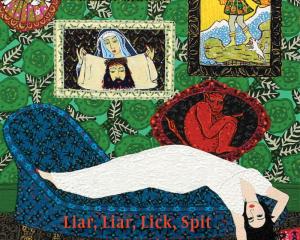
It tells the story - testimony rather than biography - of Wolfram Aichele, who was brought up as a child under Hitler's regime in provincial Germany and saw service on both Eastern and Western Fronts before surrendering to the advancing Allies in France. In some respects his account is that of what I suspect was an unwilling multitude, teenagers too young to fully comprehend how and why Hitler became the freely elected leader of Germany, youthfully indifferent to politics and conscripted as soon as they were eligible to be sent to the battleground.
Aichele was a little different from his peers, being the son of comfortably off bohemian parents (his father was a successful wildlife artist) and living in a relatively remote rural village near the town of Pforzheim. He was 9 when Hitler came to power, showed early artistic talent and lived only for painting and sculpting. His youth was devoted to learning to carve in wood (he lived in a part of Germany notable for its medieval folk art in churches and the like). Membership of the Hitler Youth was compulsory and although he tried to avoid it (he was at school wanting only to paint and carve) he could not. At 18, he was conscripted into the Reich Labour Service and, within a few months, the army, training as a wireless operator.
He was sent to the Crimea, then at the southern end of the Eastern Front, where he soon contracted diphtheria and, near death, was returned to Germany for treatment.
He recovered and was then posted to Normandy.
He was captured by the advancing Americans and sent as a POW along with thousands of others to work as labourers in the United States, and was eventually able to make his way back to Germany at war's end - not without considerable difficulty and adventure.
This summary does little justice to what is an often moving, detailed "account from within" of what life was like for ordinary country people (those who were not Nazis) as Germany and the dictator's power disintegrated around them, and the life of a conscript on the front lines during the horrors of the Third Reich. It spares none in its description of the destruction by Allied bombing of Pforzheim and its surrounding villages, or the way the Nazi regime functioned even in Germany's distant corners, or the annihilation of whole peoples.
Wolfram has been constructed from surviving letters from Aichele to his family, and from 60 hours of interviews with his son-in-law and author of the book, the writer Giles Milton. It is enlightening as a deeply personal account of German life during the Nazi years.
- Bryan James is the Books Editor.












